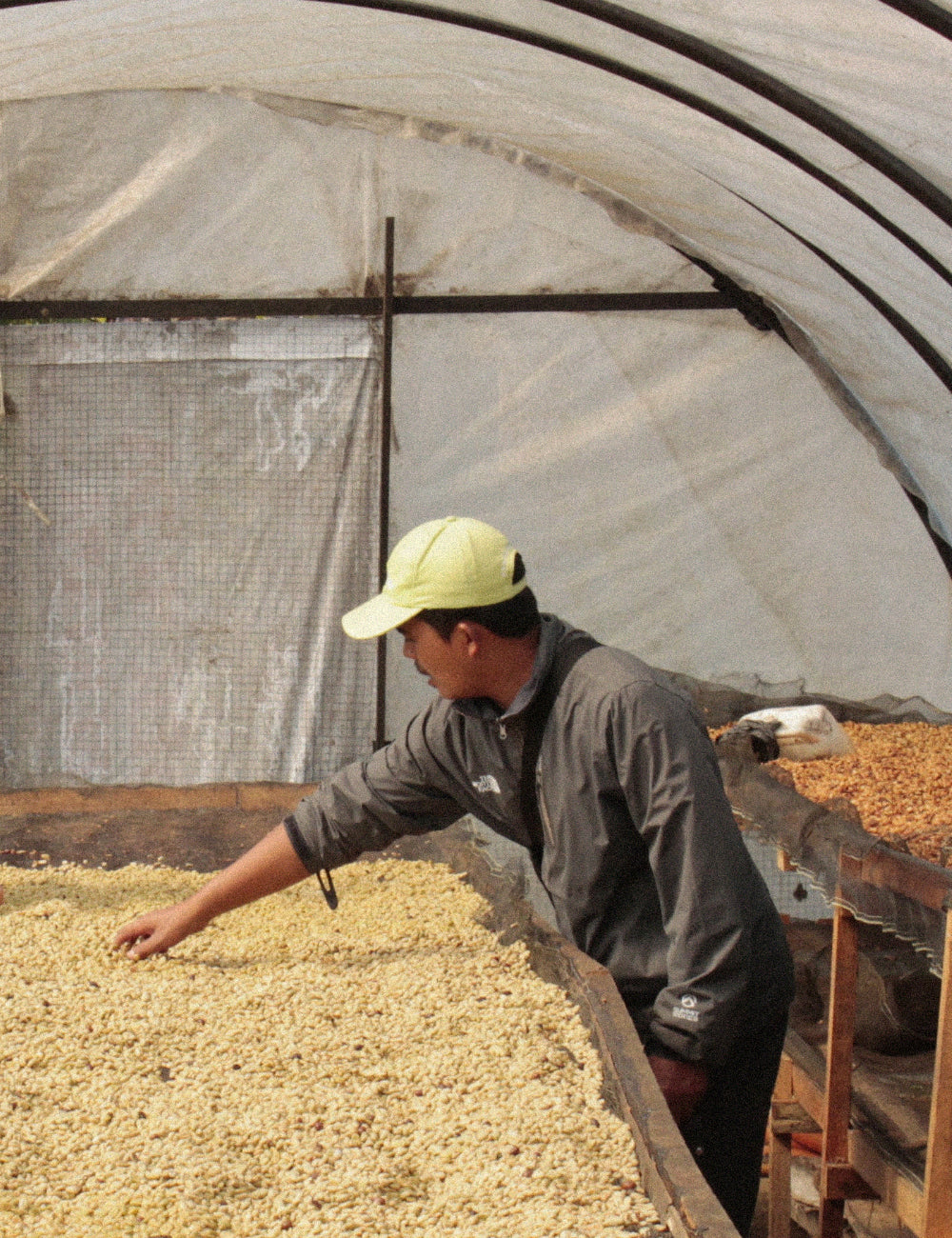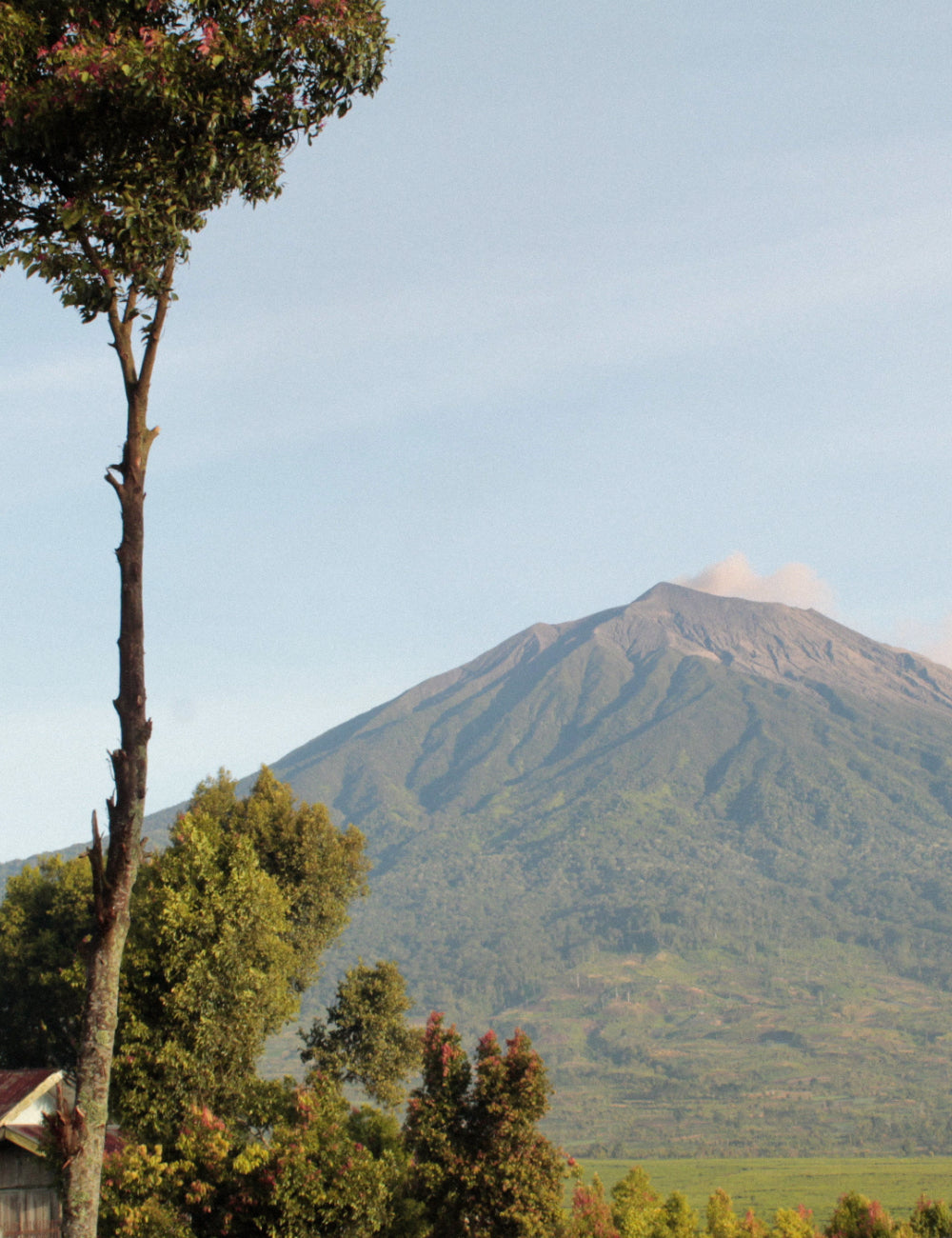Kerinci
Kerinci
Ideal growing conditions from rich volcanic soil, created by past eruptions of Mount Kerinci: cherry sweetness & a port complexity.
Regular price
£15.00
Regular price
Sale price
£15.00
Unit price
per
Character
Character
We taste cherry, port & dark chocolate.
Brewing
Brewing
Recommended for espresso and filter.
Resting
Resting
We recommend resting our coffee inside its sealed bag for a minimum of 21 days to enjoy the best results.
Couldn't load pickup availability


Plateau of Mount Kerinci.

The Producer

